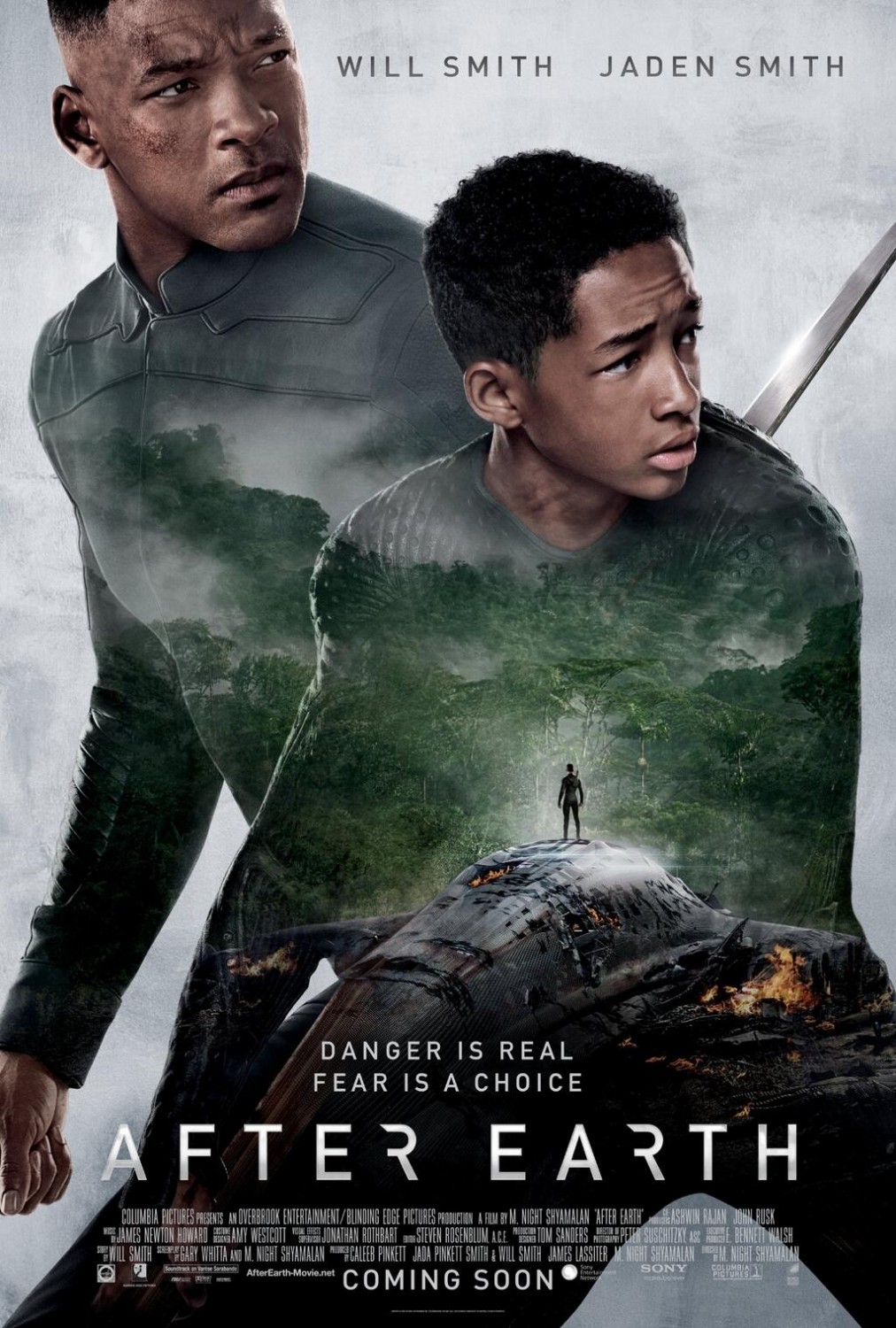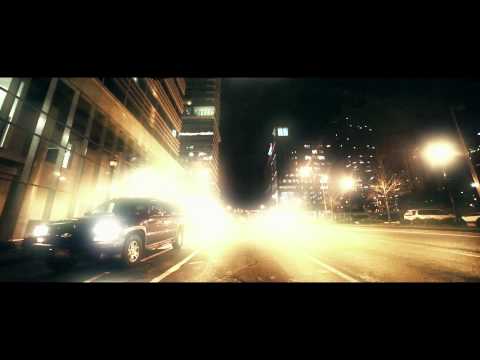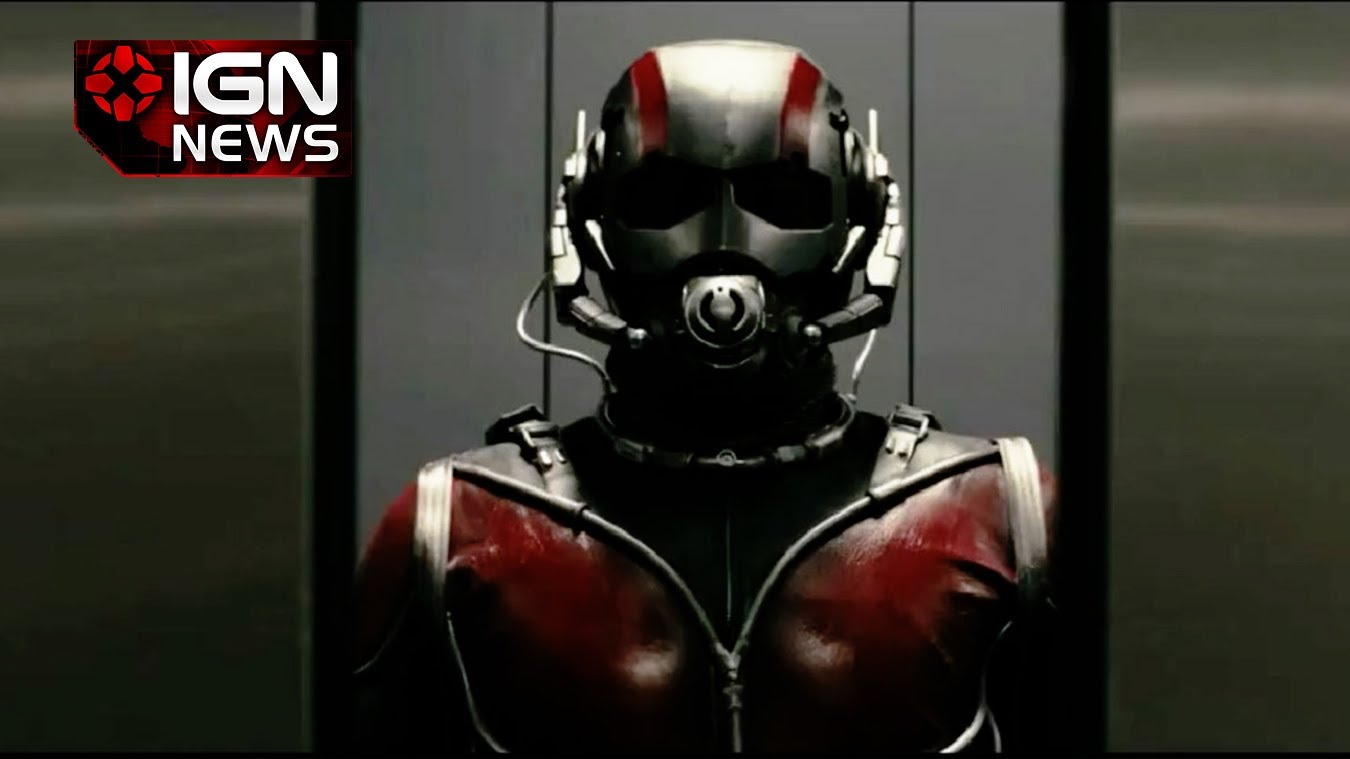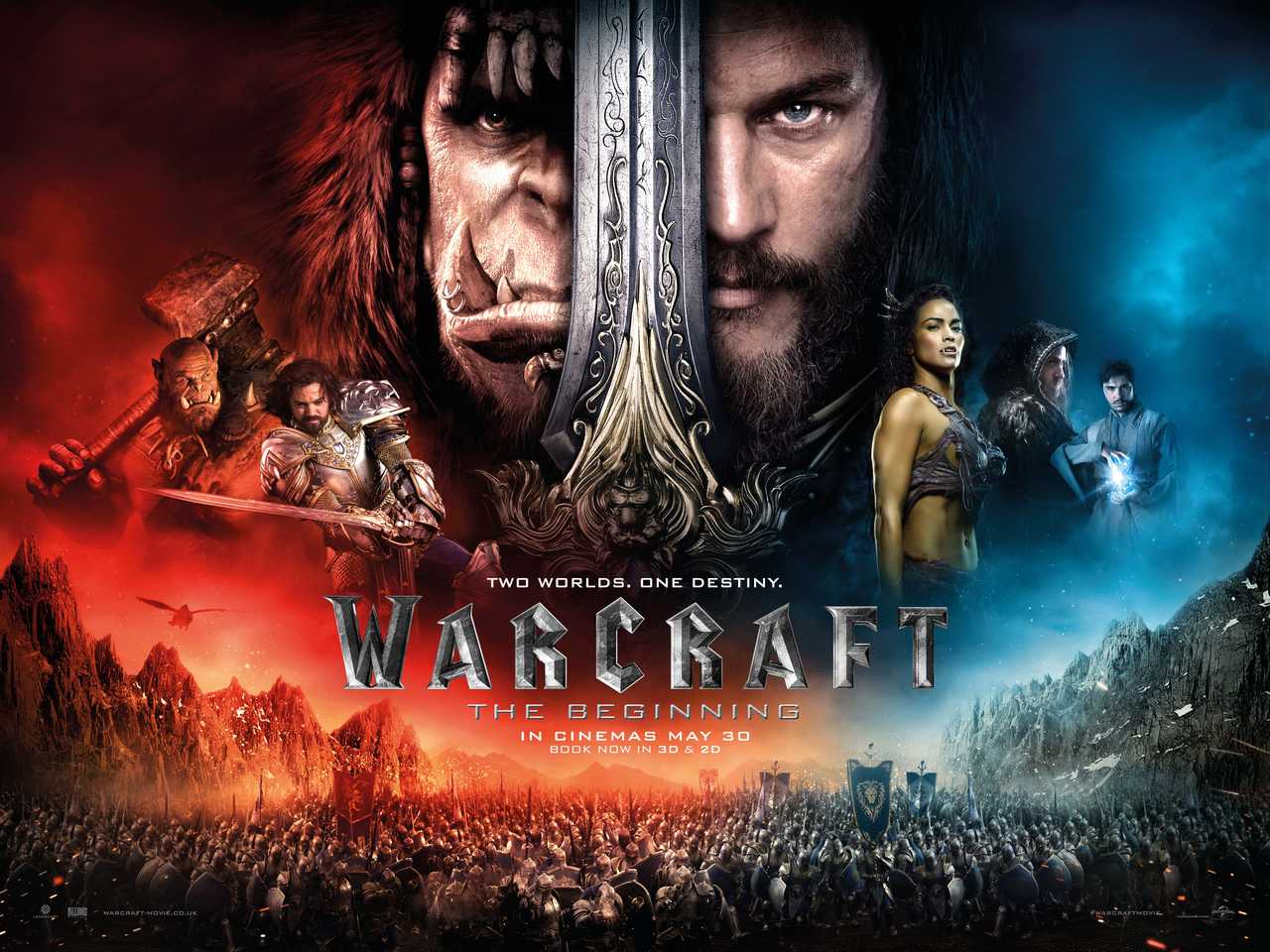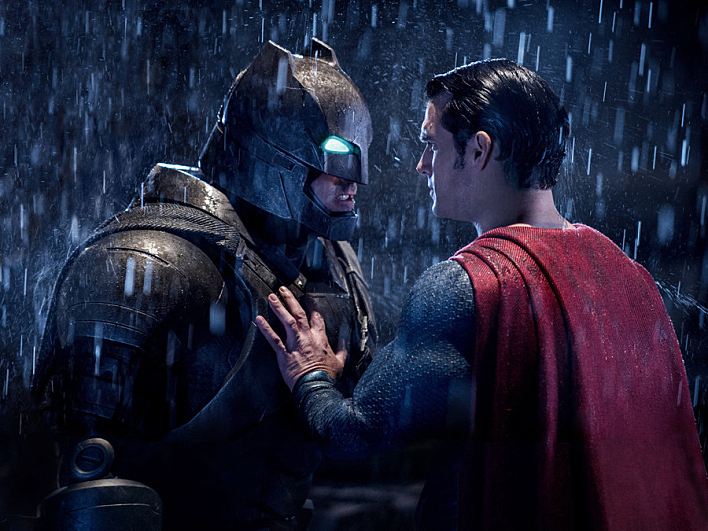After Earth is an Aesop’s Fable set in space. It’s a simple and straightforward tale about a boy growing into a man by slaying his fear; in this case, literally represented by a scary alien that hunts people down by tracking their fear. It’s not a bad story, per se. There’s a certain primalness in its simplicity, which suits the setting well, but because it is so simple, 100 minutes of it sort of stretches things a bit. This is the type of tale that could easily be shared in a half-hour after school special, but isn’t exactly suited for an epic, full-length feature film. I liked the story, but as the film dragged, I have to admit I was bit anxious just to get to the inevitable end.
The universe that After Earth is set in is certainly an intriguing one; unfortunately, the film doesn’t take any time to really explore it in any depth (which is a shame because it certainly had plenty of space to do so). Any mythology or backstory is related to us in brief bits of expository dialogue. Now, I’ve heard that a rather detailed mythology was created for the universe of After Earth, and there’s plenty of indications that there’s more to this setting than just what we’re seeing and being told, so it’s rather frustrating that such and intriguing place isn’t really given any space to be explored.
Instead, the story firmly focuses on Will Smith’s character Cypher Raige, a legendary ranger who first found the weakness in the aliens that hunted and fed off human fear, and his son Kitai Raige, played by real-life son Jaden Smith
For about 90% of the movie, these are the only two characters we see or interact with. Now, that would be fine, except Will Smith plays a character that has learned to conquer fear. However, in doing so, that has also seemed to leave him completely emotionless (which would have been a very interesting character trait to explore in-depth, but, as you’ve probably guessed, this movies doesn’t). That means you’ll see Will Smith like you’ve never seen him before, completely reserved and almost entirely reticent. He barely emotes at all, which gives him very little personality, which for someone like Will Smith who has a great deal of personality and charm, is very odd to see. Now, he has some fine moments in the film, but his one note character does get a bit wearisome after awhile, especially when there are a few lines that give just a peek of the Will Smith we all know and love. Jaden Smith doesn’t fare much better; as he basically wears the same timid and frightened look throughout the film. Of course, the whole point is he’s learning how not to be afraid, but when the film quickly falls into a steady pattern of showing him being afraid and incrementally taking steps to start overcoming it, that same look begins to beg for some variety.
Now, as with all fables, there are some good morals to be learned here. There’s the moral that the whole movie is really about, which is quite simply that danger is real, but fear is a choice. Fear is a thought process that ponders the future, the what ifs and the possibilities. For the most part, what we fear hasn’t even happened or does not yet even exist in time, and to be afraid of mere potentialities is akin to insanity. It’s a good moral, and I liked that core of the story. However, another moral is that our Father, our Heavenly Father, is always with us, even when we can’t hear him. There’s a point in the story where Katai loses touch with his father due to some sort of atmospheric interference. Cypher can see and hear his son, but his son can’t hear him. Cypher tells his son, despite the fact he won’t be able to hear, that, “I’m here, I’m right here, I promise you I’m here.” I couldn’t help but wonder how many times God has been whispering that to me. How many times has there been interference – perhaps due to my own sin, or fears, or worries, or doubts, or just because of circumstances or whatever – that has blocked me from hearing my Heavenly Father’s reassurances? Sometimes I start to wonder if he is still there when I can’t hear him, a natural doubt, but certainly an unnecessary fear. How many times in the Bible does God promise that he’ll always be there for us, no matter what, come what may? Your Heavenly Father loves you, and he promised he would be there, always. Genesis 28:15 is just one example where he says, “I am with you and will watch over you wherever you go…” So take heart, you may not see, you may not even hear, but God is there.
Now, when the strongest thing to be said about a film is it’s a M. Night Shyamalan movie that isn’t terrible, you know you’re not exactly talking about a great movie. However, it also isn’t a bad one either. Some films suffer from not having enough focus.
After Earth could perhaps have benefited for having a focus that wasn’t quite so narrow. If it would have opened things up a bit, given us a broader glimpse of this place, these people, that could have added some much needed meat to a very basic, but still very good, story. After Earth is a unique vision of the future, we just don’t get to see very much of it, and instead are zeroed in on a very familiar story of rites of passage, fathers and sons, and conquering fears. These are all good things to explore, but allowing a bit more of the context in which these themes are placed in to leak into the proceedings might have helped a great deal. Despite some of its uniqueness and intriguing setting, by the end the film really doesn’t leave much of a lasting impression.
The film is rated PG-13 due to some intense action scenes that aren’t really all that bloody, but still intense. There are also some trademark M. Night jump scares, but oddly, not quite in the places you might expect.

